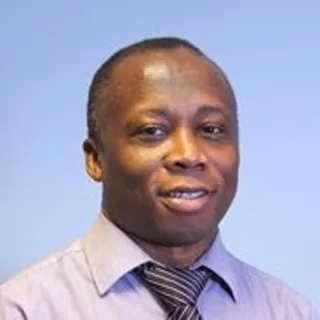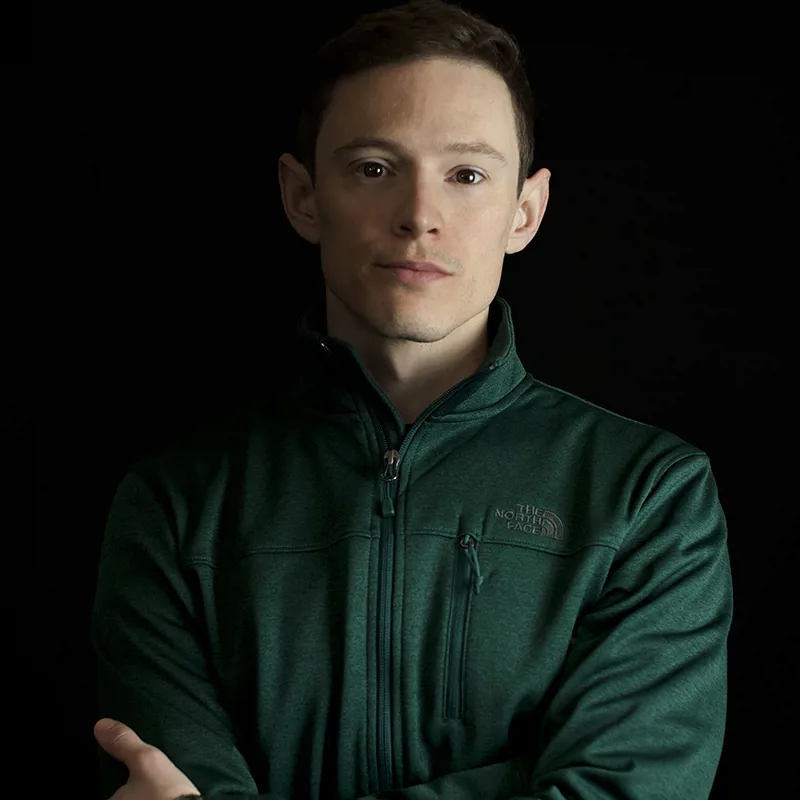
Paul Iliffe, Satcoms Training Specialist
Paul Iliffe worked in the Inmarsat Spacecraft Operations and the British Airways Flight Data Recording teams. Additionally, he has conducted research in astronautics at the Laboratory for Spacecraft Systems at the Tokyo Institute of Technology. He is an alumnus of and has lectured at the International Space University, including conducting The Sat-Comms Game at the 2021 and 2022 Space Studies Programmes.
Beyond engineering, Paul has studied German, Japanese, French, and Turkish, and pursued a range of athletic activities including skiing, martial arts, gymnastics, basketball, and Ballroom dancing. He is strongly interested in the process of effective teaching, learning, and performance in all disciplines
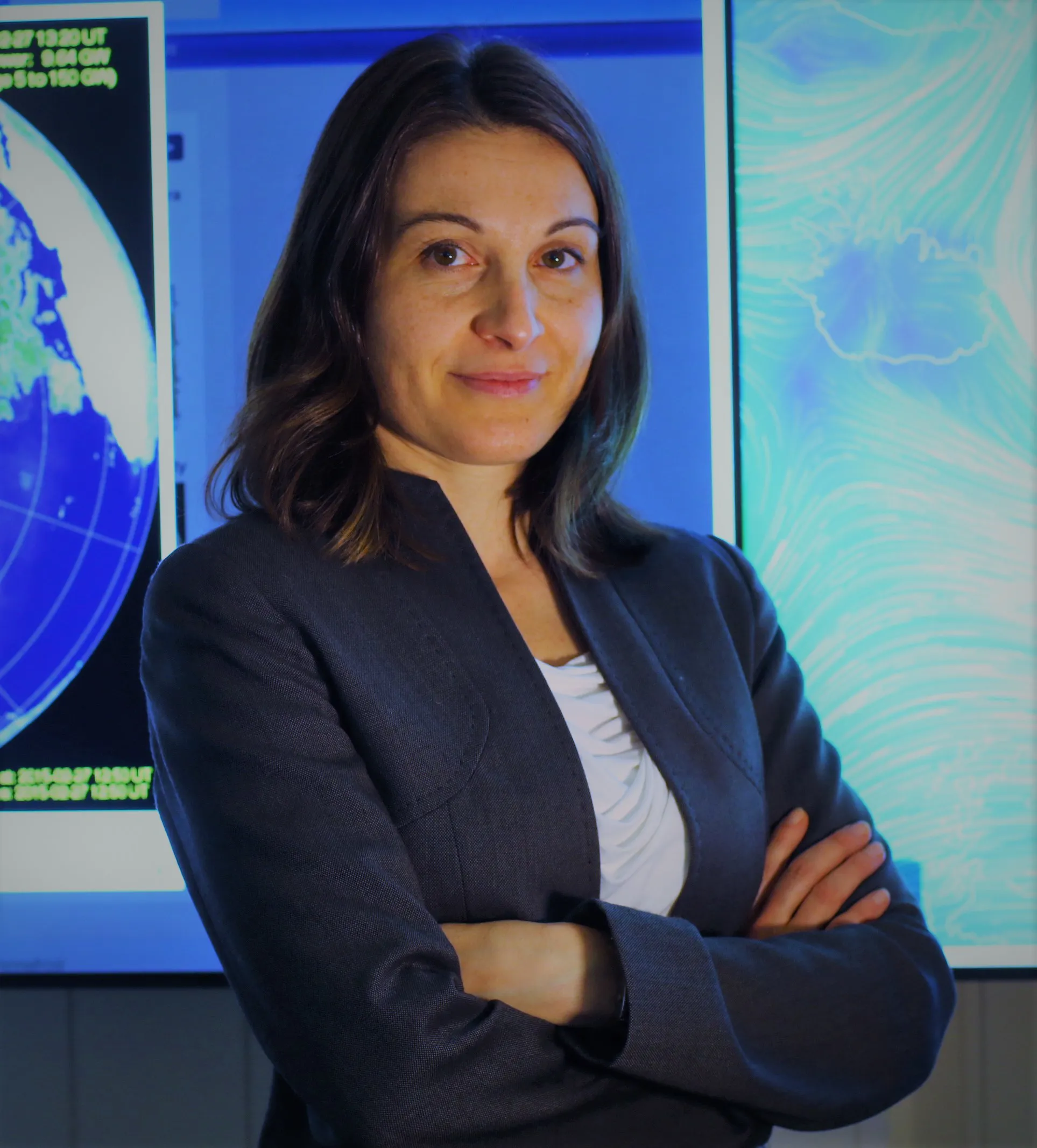
Max Petrozzi Ilstad, ESA
Max is currently working as an expert in Spacecraft Verification and Testing activities at the European Space Agency. She has 20+ years of an international career in Space, with and for small and large companies and governmental organisations, including the European Commission.
She held roles as CTO, Chief Engineer, Director of Engineering, Systems Engineering Department Head, Satellite Environmental Test Director, Engineering Manager, Payload Manager, R&D engineer, spacecraft design, and test engineer.
Max has experience over the entire Spacecraft project life cycle: from requirements definition to operations and has extensive hands-on experience with the testing of Spacecrafts in clean rooms, and including leading 30 test engineers for Spacecraft environmental testing.
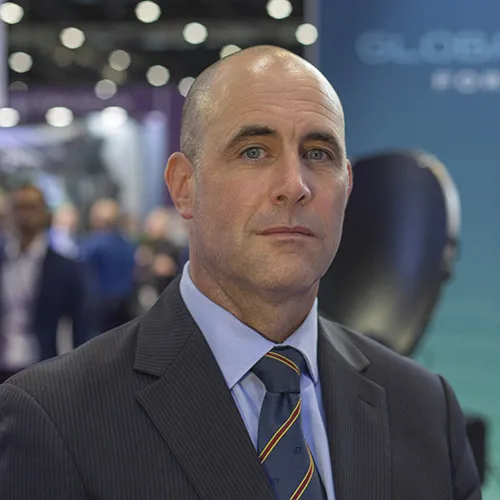
Dave Davis Technical Director – Global Accounts Team ST Engineering iDirect
Dave Davis is a Chartered Engineer with a seasoned background in Satellite Communications (Satcom). Learning his trade as an apprentice in the British Army in 1988, he went on to specialize in Satcom at an early age; his first practical experience of Satcom being the response to Hurricane Andrew in the Caribbean in 1992.
Months later he was in the first wave of troops deployed to Bosnia as a satellite terminal technician and continued to work with satellite terminals until his final tour as the military Satcom instructor. He was awarded the MBE in 2002 for meritorious military service.
Leaving the Army in 2003, he went into industry and continued to build his professional qualifications. He joined NSSLGlobal, a leading Satcom distribution partner, as a Systems Engineer, before becoming a Project Manager and Engineering Manager.
He led many cutting-edge projects and was responsible for providing communications to many high profile expeditions, events and deployments. In 2013, he went on to become the Defence and Security specialist at ST Engineering iDirect, before moving to be the lead engineer supporting the ground-breaking Inmarsat Global Xpress (GX) network.
Dave sits on various national and international panels as a technical advisor, is a non-exec Director on the board of the Institute of Telecommunications Professionals (ITP) and Chair of the Institution of Engineering and Technology (IET) Satellite Technical Network.
In his spare time, Dave volunteers with the IET and ITP as a Mentor and Professional Recognition Advisor and Assessor. He also volunteers with the Newman Holiday Trust (www.newmantrust.org) and RE:ACT Disaster Response (www.re-act.org.uk); both organisations are always looking for new volunteers.
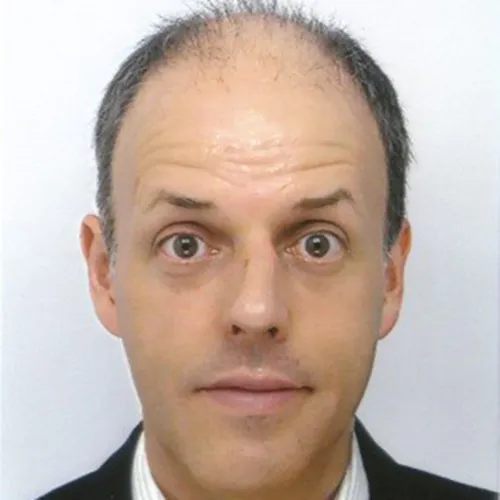
David Jowsey, Senior Product Manager – Satellite Networks, Media & Broadcast, BT
David has over 30 years’ of experience in satellite communications. He is currently responsible for BT’s in house satcoms portfolio covering pre-sales and product management. He has an MEng in Electronic Systems Engineering from the University of York.
He has worked in various specialist satellite roles including: project engineering and project management of broadcast satellite systems, satellite service planning & network development, and serving two years as the UK delegate to the Intelsat Planning Advisory Committee and the Eutelsat Technical and Planning Committee prior to their privatisations.
David has been seconded to various BT Joint Ventures, including providing project engineering expertise in Singapore and in-country due diligence in Latin America.
He is on the IET Satellite Technical Network Committee.
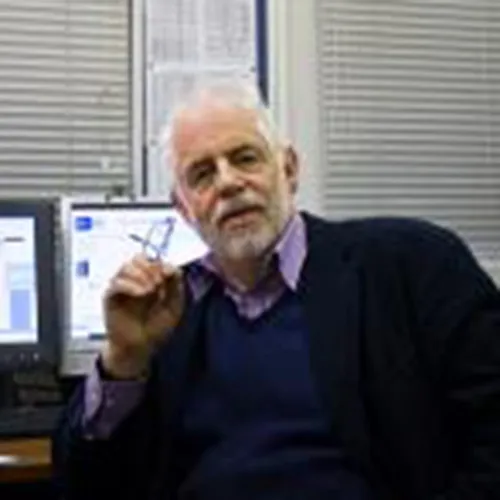
Tim Tozer, Professor of Electronic Engineering , University of York
Tim Tozer is with the Department of Electronics at the University of York, and was formerly head of their Communications Research Group. He has many years background in satellite communications, including working on the Skynet military satellite programme.
In addition to teaching and lecturing, he has managed or worked on a wide range of research activities in wireless systems, including VSAT and High Altitude Platform (HAP) based systems.
Tim is a named author on over 200 publications, and presents widely at international workshops and conferences. Tim has now been involved with this IET Satcoms Course for over 30 years.
He is a Fellow of the IET, and a former member and Chair of the IET SatSys PN Executive Team; he has also been Chair of the European COST Action 297 addressing HAPs and their applications.
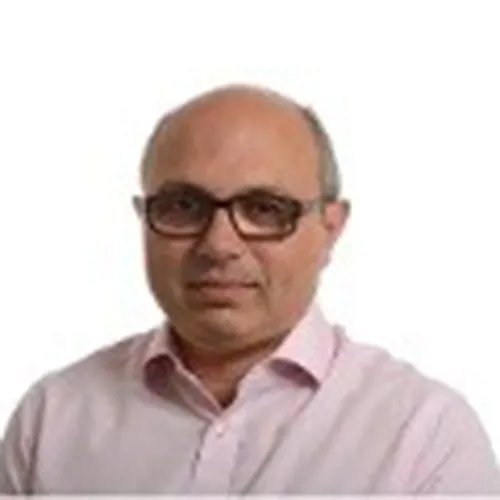
Daryl Jones, Head of Advanced Payload Systems, Airbus Defence and Space
Daryl Jones has worked in the space industry for over 20 years and is currently a Senior Expert in Advanced Payload Systems for AIRBUS Defence & Space.
He received the BEng (Hons) degree in Electrical & Electronic Engineering from Brunel University in 1992 followed by an MSc degree in Satellite Communications Engineering from the University of Surrey in 1993.
As a Senior Expert he is responsible for the design and development of next generation highly flexible very high throughput payloads employing active antennas, onboard digital processing and flexible high power output sections for commercial and military applications.
Areas of current interest include non-geostationary satellite constellations and the role of satellite systems in the 5G era.
Over his career he has been the author of multiple papers on Advanced Flexible Payloads and the co-inventor of five patents in the areas of Multiport Amplifiers and Wideband Output Multiplexing.
In his spare time Daryl enjoys playing squash, hiking, the odd craft beer and science fiction.
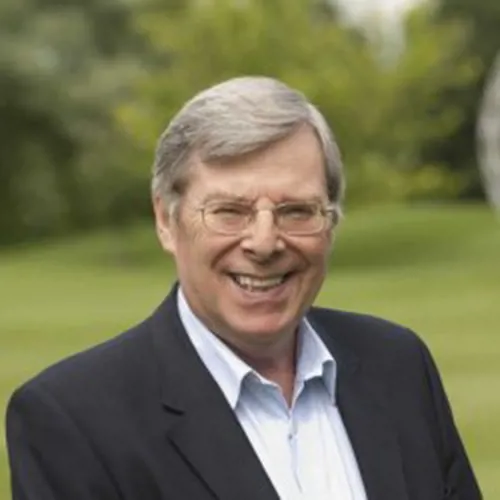
Barry Evans, Professor- Information Systems Engineering, University of Surrey
Professor Evans has BSC and PhD degrees from the University of Leeds, is a Fellow of the UK Royal Academy of Engineering and of the IET and senior member of IEEE and AIAA.
From 1968 to 1983 he was British Telecom lecturer to Reader at the University of Essex in Telecommunication systems. He was appointed to the Alec Harley Reeves chair of Information systems engineering at the University of Surrey in 1983 and was founder Director of the Centre for satellite engineering research and then the Centre for Communication Systems Research.
He was Dean of Engineering 99-01 and Pro-Vice Chancellor for research and Enterprise from 01-09. He now heads the satellite communications research group in the Institute for Communication Systems at Surrey and is actively involved in the 5G Innovation Centre.
Barry Evans has researched in satellite communications, radio propagation, signal processing and networking and has over 600 publications in the literature plus three books. He is Editor of the International Journal of Satellite communications.
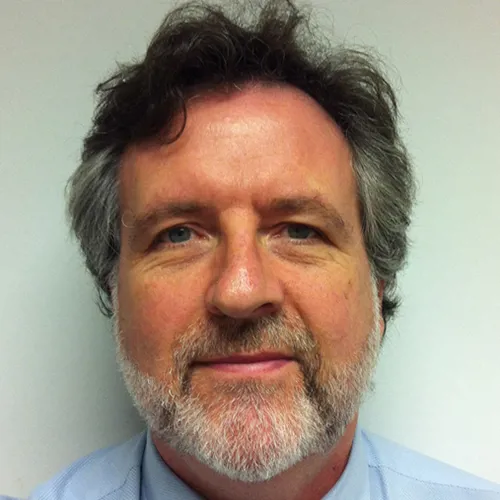
Tim Waterfield, Industry Expert Antennas and Satellites
Tim has a first class degree in Physics and completed the MBA course at the University of Bradford in 1981. Apart from three years working on Earth station antennas at ERA Technology Ltd (now Cobham) and two years as an overseas consultant in satellite antenna design in France, Spain and Canada, he has worked in the Antenna Group at Airbus since 1982, and as a Senior Specialist since 2000.
He has been a key figure in the development of communications antennas for all generations of the Eurostar series of satellites, and has most recently been coordinating the development of space-based active array antennas for civil Telecoms.
He lives in Cambridge, and has been a speaker on the IET Satcoms Course since 2003.
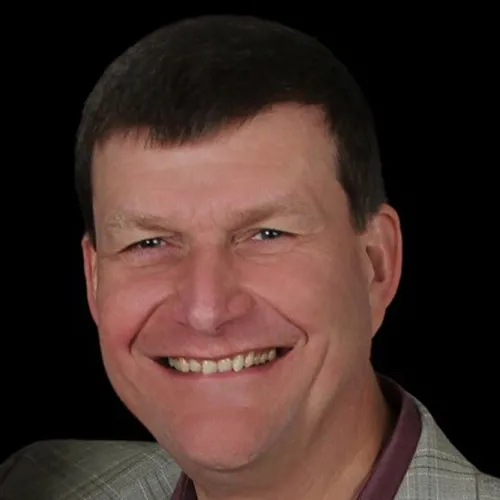
Kevin Shaw, Joint Forces Command, MOD
Kevin Shaw served 34 years in the Royal Navy in a wide variety of appointments as both a communications and data engineer supporting global military operations in NATO, International and Joint Service organisations.
In his earlier career, he led research in both Position Navigation and Timing (PNT) and Communication Satellite Technologies, moving on to manage SKYNET Satcom Service delivery and subsequently exploit commercial space-based services.
Now a Reservist, he helps small companies as a specialist consultant and continues to work for MoD in directing its acquisition of SKYNET 6, the communications network which will enable the UK's mobile warfighters for the next two decades.
A Chartered Electrical Engineer with a PhD in Electromagnetic Propagation at ELF, he considers himself a well-rounded communications engineer.
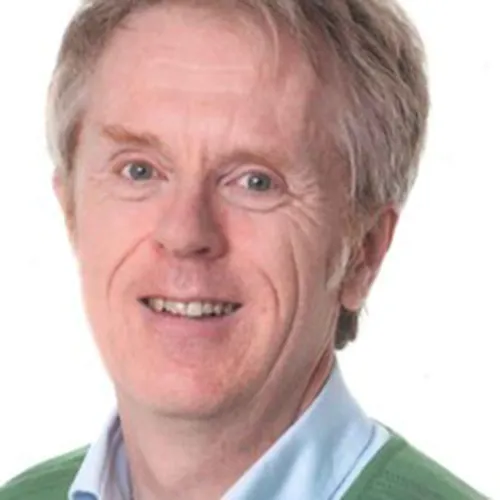
Gorry Fairhurst, Professor in Electrical and Electronic Engineering, University of Aberdeen
Gorry Fairhurst received his first degree in Applied Physics and Electronics from the University of Durham, UK, and a PhD in Communications Engineering from the University of Aberdeen, UK.
He joined the University of Aberdeen academic staff after working with Prof. Tim Spracklen as a post-doctoral fellow with a range of projects on networking via satellite funded by the UK Satellite Communications Centre, Defford, UK.
He is a Professor in Electrical and Electronic Engineering at the School of Engineering at the University of Aberdeen, his research is in Internet Engineering.
He has published more than 200 papers on topics in broadband and broadcast satellite, TV/video transmission, IPv6, IP multicast, X.25, together with work on Internet measurement, protocol architecture and Internet transport mechanisms.
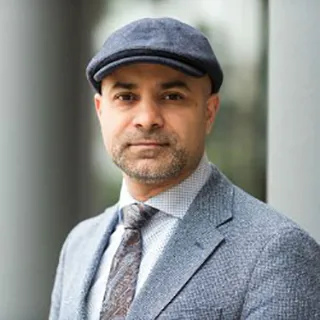
Farbod Kayhan, Telespazio, UK
Farbod Kayhan received the Ph.D. degree in electrical engineering and telecommunication from Politecnico di Torino, Italy, in 2007, where he worked also as a research assistant till 2015.
He was a research associate with the SIGCOM group, University of Luxembourg from 2015 to 2020. From September 2020 to August 2023, he has been a Lecturer of satellite communication at 5G&6G innovation centre of the University of Surrey.
His main research interests include satellite communication, signal processing and 5G NTN networks.
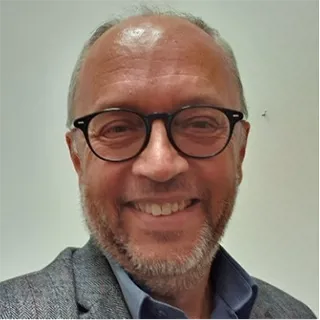
Mark Posen, Managing Director, RPC Telecommunications Ltd
Mark Posen’s 40-year professional career has been entirely within the satellite communications industry.
After graduating from Bristol University (UK) with an honours degree in Electrical and Electronic engineering, Mark joined British Telecom’s Satellite Systems division, where he held a number of technical and radio regulatory management roles, culminating in his appointment as Satellite and Lines Development Adviser.
During his time at BT Mark also graduated from Surrey University (UK) with a Masters degree in Satellite Communications Engineering.
Leaving BT in 1990 to found, with a colleague, Reed Posen Consultants Ltd., Mark commenced his independent consulting career.
In 1993 Mark founded RPC Telecommunications Ltd. where he remains today as Managing Director and Principal Engineer.
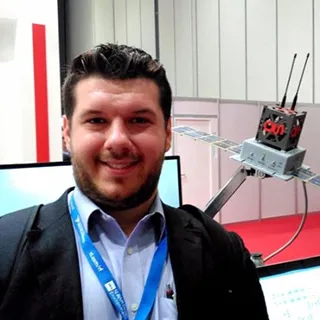
Spyridon Grammenos, Payload systems engineer, Inmarsat
Spyridon studied BEng Electronics and Communications Engineering at London Metropolitan University, graduated in 2017 and joined SSTL as RF/GNSS Payload Engineer shortly after graduation.
He was involved in the FOC Galileo payload assembly and testing campaign including In Orbit Testing activities as well as the manufacturing of the Remote Telemetry Unit.
Since 2021, he has been working at Inmarsat as a Payload Systems Engineer with daily activities including mission and payload design, link budgets and recently satellite capacity forecast and modelling.
